Contact center of the Ukrainian Judiciary 044 207-35-46

Determination of the procedure and conditions for compensation for damage in the meaning of Art. 152 of the Constitution of Ukraine as a positive obligation of the state, problematic aspects of the practical implementation of the provisions of Part 3 of Art. 152 of the Constitution of Ukraine, legal instruments for compensation for violated human rights as a result of declaring an act unconstitutional, experience and practice of European states in compensation for violated rights as a result of declaring an act unconstitutional - these and other issues were discussed during the International Workshop ‘Is a right without a remedy really a right: issues of compensation for the breach of a right as a result of an act being declared unconstitutional’.
The thematic sessions of the event were moderated by Myroslava Bilak, judge of the Administrative Cassation Court of the Supreme Court.
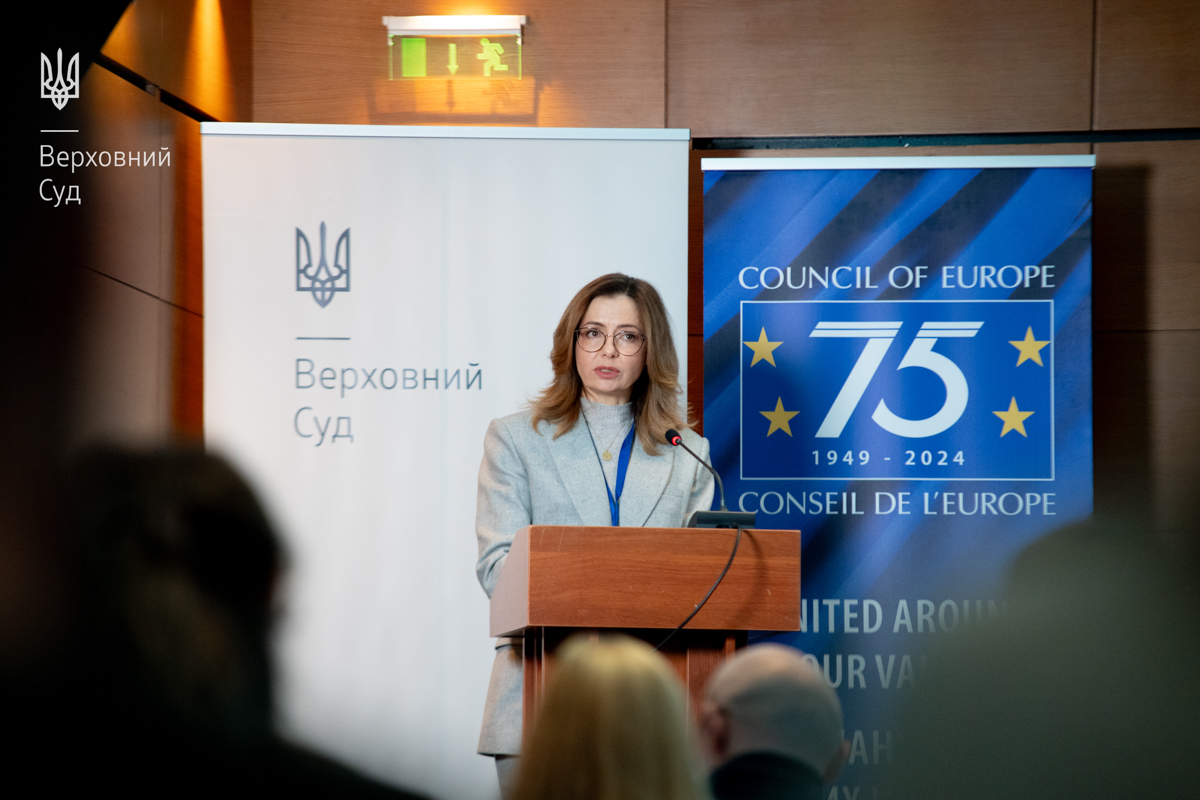
During the first session of the seminar, ‘The mechanism of judicial compensation by the state in accordance with the third part of Article 152 of the Constitution of Ukraine and the exchange of international experience’, Mykola Gnatovskyy, judge of the European Court of Human Rights, addressed the issue of compensation for damage caused by violation of constitutional rights of an individual, taking into account the experience of European states in the light of the ECHR case law.
The speaker said that the ECHR plays a key role in the protection of human rights. The issue of compensation for violations of constitutional rights is an important aspect of its work. This issue is closely related to the basic principles of the Convention for the Protection of Human Rights and Fundamental Freedoms, in particular the principle of subsidiarity, according to which the main responsibility for the violation of human rights lies with the state. According to this logic, it is the state that must provide mechanisms for compensation for violations of the rights of its citizens.
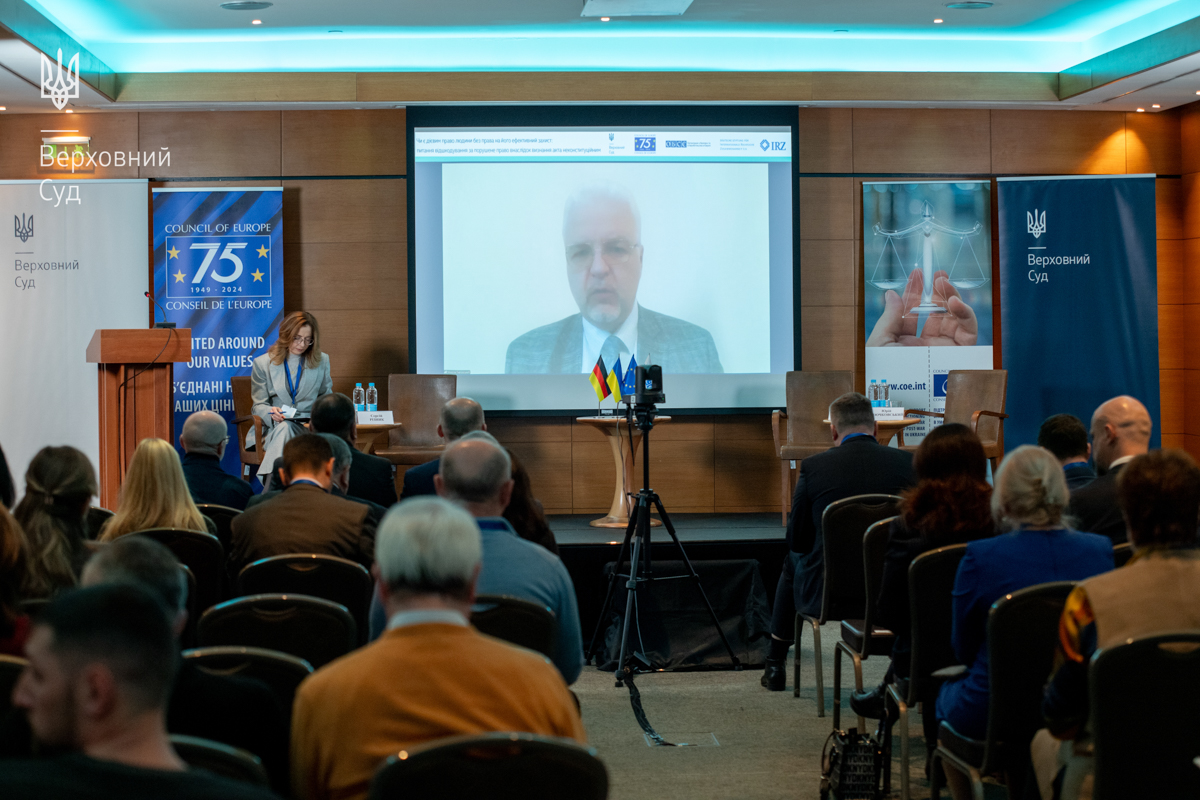
The ECHR also determines that the right to an effective remedy is an integral part of the protection of human rights. This right is enshrined in Article 13 of the Convention, violations of which are usually accompanied by violations of other Convention rights. It is important that every citizen has the opportunity to apply to national authorities for compensation for violations of their rights, which is a prerequisite for effective protection.
At the same time, European states have different approaches to providing compensation mechanisms for violations of constitutional rights. One of the main criteria by which the ECHR assesses the effectiveness of national remedies is the availability of procedures for compensation in the state. This issue is of particular importance in the context of a constitutional complaint, which is an important tool for protecting human rights at the national level.
Mykola Koziubra, professor of the Department of General Theoretical Jurisprudence and Public Law of the National University “Kyiv-Mohyla Academy”, member of the Scientific Advisory Board at the Supreme Court, focused on conceptual and methodological approaches to compensation by the state for damage caused to individuals or legal entities by acts and actions declared unconstitutional.

He analysed the general conceptual approaches arising from the provisions of the Constitution of Ukraine, international legal instruments and the case law of the ECHR to the protection and restoration of rights in case of violation, in particular by acts and actions declared illegal or unconstitutional. According to the academic, the basis for solving the problem under discussion is part 2 of Article 3 of the Constitution of Ukraine, according to which ‘human rights and freedoms and their guarantees determine the content and direction of the state's activities’.
Speaking about these provisions of the Basic Law of Ukraine, Mykola Koziubra noted that, firstly, gaps, conflicts, uncertainties in laws and other regulations cannot be an obstacle to the protection of human rights and freedoms and their restoration in case of violation, regardless of who violated them, including the state and its bodies. Secondly, the provision that the state is responsible to the individual for its activities means that it bears not only political and moral responsibility for its actions, but also retrospective legal responsibility in case of violation of human rights and freedoms by it or its bodies.
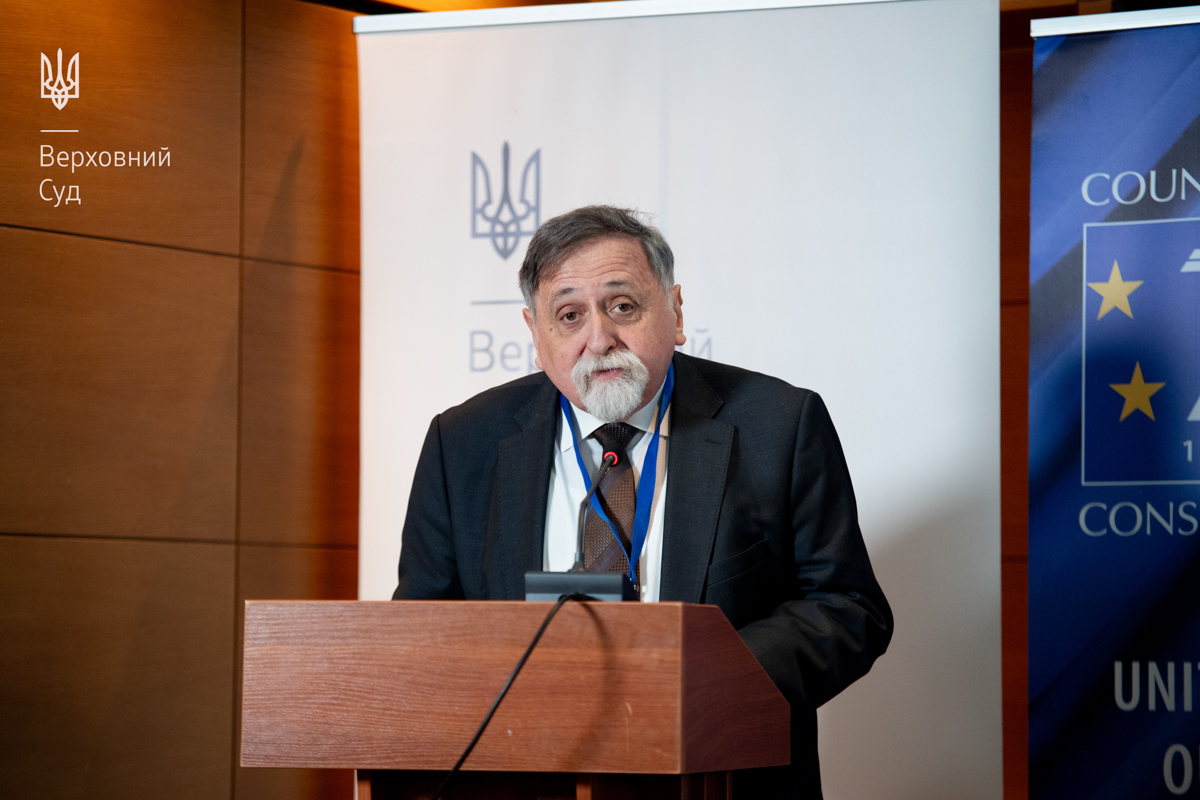
Yurii Kliuchkovskyi, Associate Professor of the Department of General Theoretical Jurisprudence and Public Law of the National University “Kyiv-Mohyla Academy”, member of the Scientific Advisory Board at the Supreme Court, pointed out that among the basic principles of the rule of law, the principle of respect for human rights and freedoms is a fundamental requirement enshrined in part 2 of Article 3 of the Constitution of Ukraine as the main duty of the state. For courts, this principle is implemented through the provisions of Article 55 of the Constitution of Ukraine. The supremacy of the Constitution as an act of supreme legal force (Article 8 of the Constitution of Ukraine) stipulates that all laws and other regulatory legal acts must comply with the Basic Law. The principle of legality concerns not only the requirement to comply with the law (Article 19 of the Constitution of Ukraine), but also the legal nature of the law itself. Under the supremacy of the Constitution, a law that is unconstitutional is considered illegal. The principle of legal certainty also encompasses the important principle of res judicata, which guarantees the stability of court decisions.
According to Yurii Kliuchkovskyi, these principles are directly relevant to the discussion on the protection of rights violated by the application of an unconstitutional law. However, it should be borne in mind that the principles of law may come into conflict with each other, which is resolved by their mutual harmonisation through comparing their meaning in specific conditions, as a result of which one of them takes precedence. Such a conflict between the above principles of law occurs in connection with the issue under discussion.
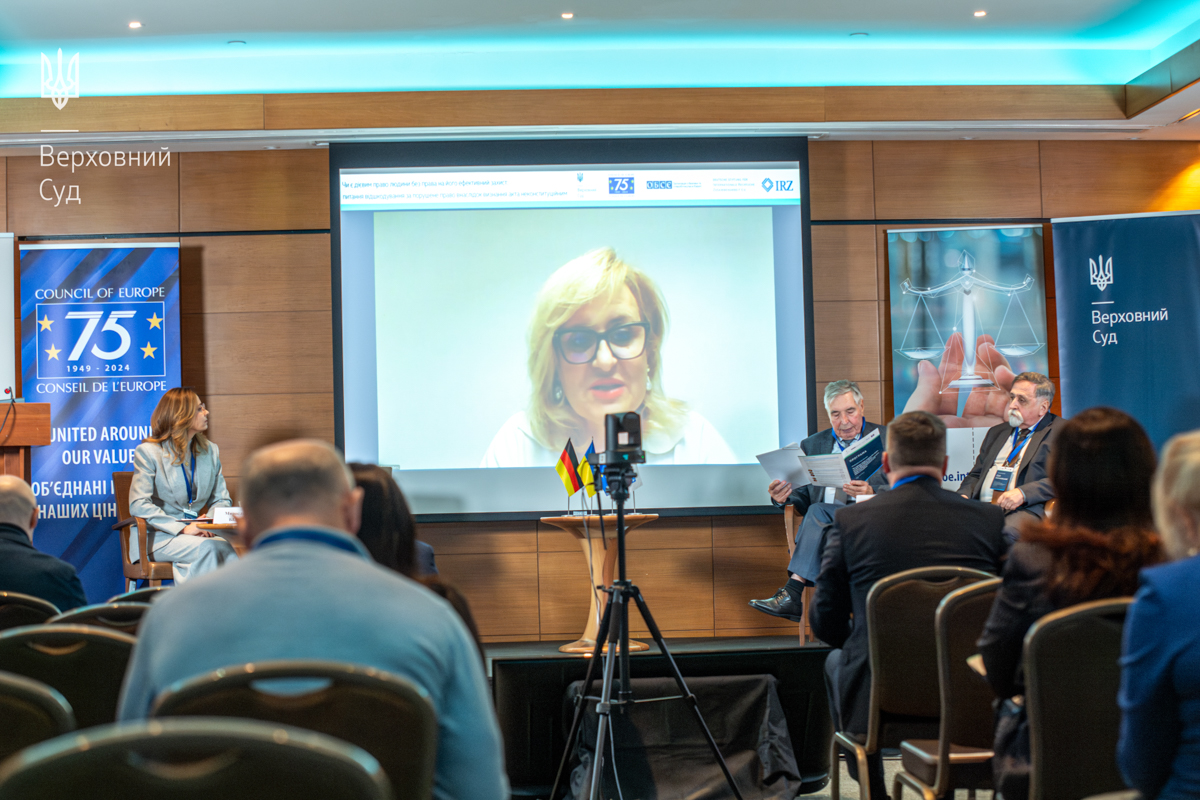
Slavica Banić, international consultant at the Council of Europe, highlighted the topic of monetary compensation and other types of redress in the decisions of the Constitutional Court of Croatia to ensure a fair balance between the interests of the state and the rights of individuals.
Comparing the constitutions of Croatia and Ukraine, the international expert emphasised that they have many similarities, in particular in the desire to build a democratic society based on the rule of law and the protection of human rights and freedoms. However, they differ both in terms of initiating constitutional review proceedings and in terms of compensation for damages in the event of unconstitutionality.
In addition, unlike the Basic Law of Ukraine, the Croatian Constitution does not provide for the obligation of the state to compensate for material or moral damage caused to individuals or legal entities by unconstitutional acts or actions, and does not contain provisions on regulation by law. However, compensation for damages as a remedy for violations of rights caused by an unconstitutional act does exist.
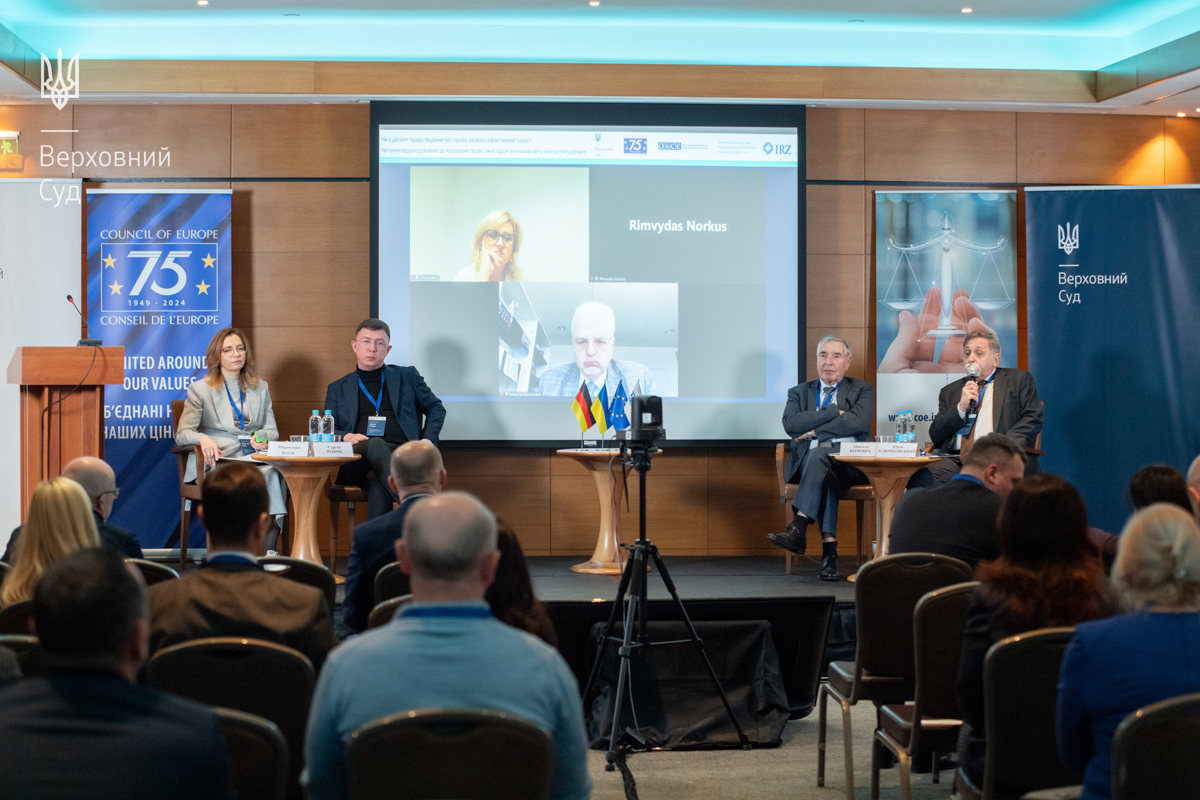
This is the difference between Ukraine and Croatia, as in Croatia, anyone can submit a proposal for a constitutional review of a law or other legal act (regardless of a constitutional complaint filed against individual acts), if the court accepts the proposal and annuls the disputed law or other legal act as unconstitutional. The individual or legal entity proposing the review has the right to request the amendment of an individual act that is based on a law or other regulatory act declared unconstitutional or illegal. Only if the amendment of the legal act cannot eliminate the harmful consequences of the violated right caused by the unconstitutional act, a claim for damages may be filed with the competent court under the rules of tort law.
One of the key components of the EU legal system is the principle of liability for damage caused by a breach of EU law. This issue is of particular importance in the context of Ukraine's European integration.
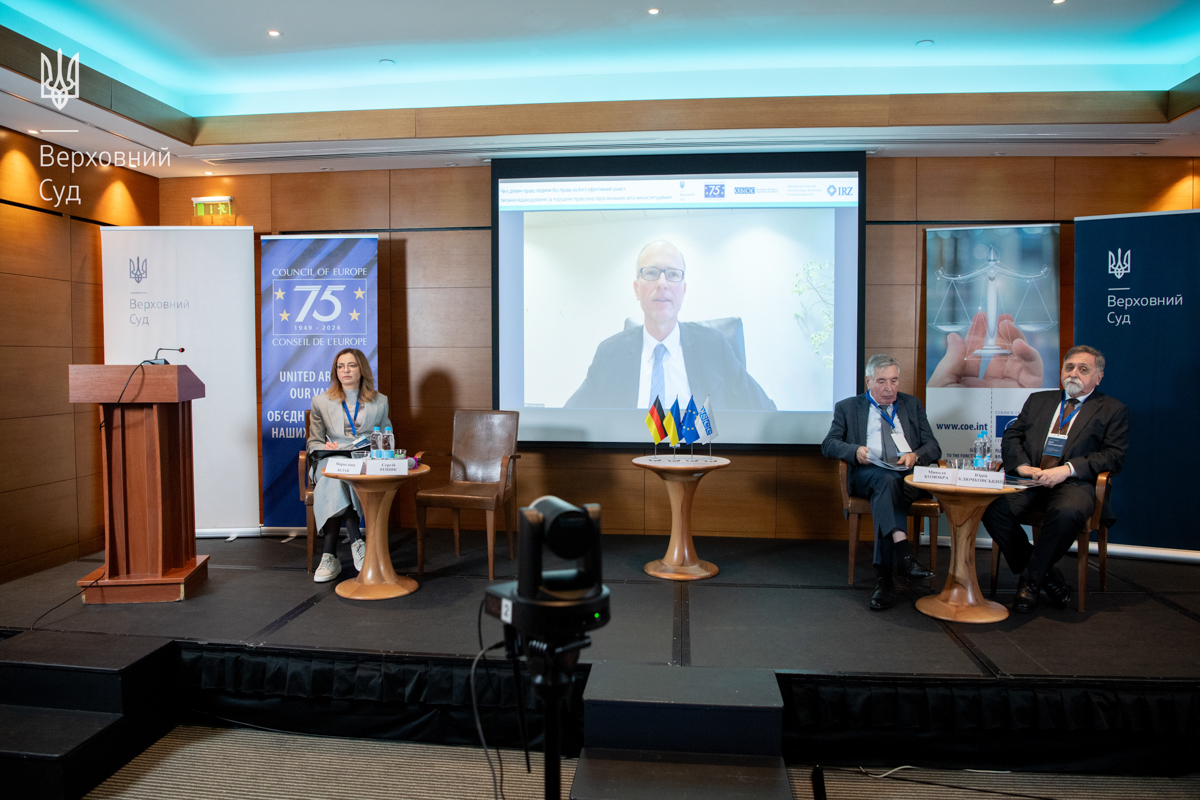
Rimvydas Norkus, Advocate General at the Court of Justice of the European Union, spoke about the liability for damages for breach of EU law.
According to the speaker, the EU Court of Justice pays special attention to the issue of compensation for breach of EU law, focusing on two main principles: effectiveness and equivalence. These principles relate not only to substantive rights but also to procedural aspects, such as the rules of evidence, damage assessment and limitation periods.
Liability for infringement of EU law is one of the main pillars on which the entire system of compensation for damages is based. Depending on the type of regulatory act that violates EU law, the problem of compensation can be solved both at the level of a particular member state and at the level of the Union as a whole.
The closing report of the first session on ‘Formation of the practice of the Constitutional Court of Ukraine on compensation for material or moral damage caused to individuals or legal entities by acts recognised as unconstitutional’ was delivered by judge of the Constitutional Court of Ukraine Serhii Riznyk.
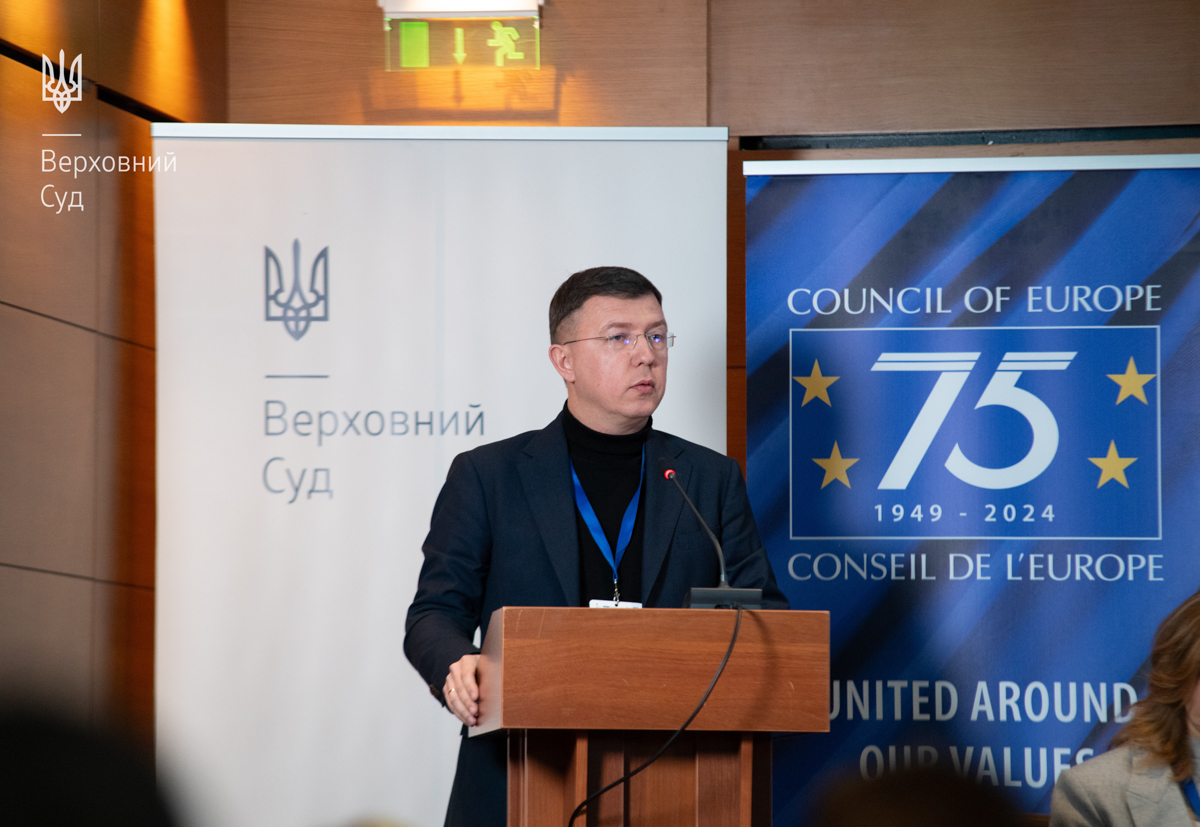
The speaker noted that the issue of compensation for damage caused to individuals or legal entities by acts declared unconstitutional is a multi-component and complex one. It is not new and has arisen since the adoption of the Constitution of Ukraine, but the issue of compensation for pecuniary and non-pecuniary damage has not been sufficiently developed in case law. In particular, the practice of applying part 3 of Article 152 of the Constitution of Ukraine at the level of the Constitutional Court of Ukraine and courts of general jurisdiction remains limited.
Even before the emergence of the constitutional complaints mechanism, CCU judges have already faced the need to resolve the issue of compensation for damage caused by acts that have been declared unconstitutional. Although the Constitutional Court of Ukraine has the competence to declare acts unconstitutional, the problems that arise in the process of applying this provision remain relevant today.
To effectively address this problem, the speaker believes that it is important not only to take into account the CCU's activities, but also to apply other mechanisms of legal control, in particular, administrative courts. Only a comprehensive approach that involves all parties to legal relations will help to resolve these difficulties in practice.
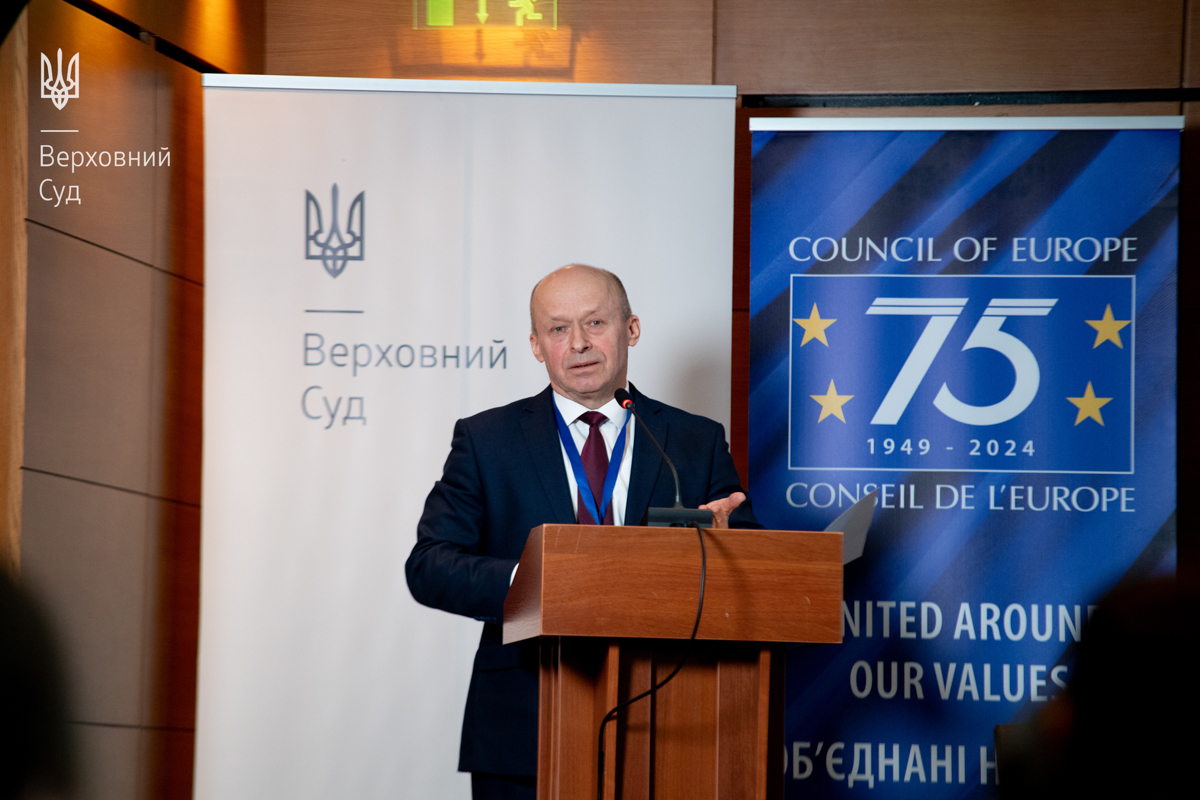
During the second session, devoted to the discussion of ways to resolve the issues raised through the prism of national and international aspects, Mykhailo Smokovych, President of the Administrative Cassation Court of the Supreme Court, spoke about legal mechanisms for protecting the violated right as a result of the recognition of a legal act or its separate provision as unconstitutional.
According to the speaker, such mechanisms currently include the recovery of material or moral damages caused to an individual or legal entity by acts and actions declared unconstitutional (part 3 of Article 152 of the Constitution of Ukraine), as well as the application of the institution of review of court decisions due to exceptional circumstances.
As for the retrospective effect of the decisions of the Constitutional Court of Ukraine in terms of restoration of violated rights of a person due to exceptional circumstances, the President of the ACC of the Supreme Court believes that this issue should be resolved as soon as the relevant provisions of the Law of Ukraine ‘On Lawmaking Activity’ come into force. These provisions will prohibit the application of provisions that no longer exist or that are set out in a new version or in laws that have been declared unconstitutional. In this regard, the courts will have only one mechanism - the recovery of pecuniary and non-pecuniary damage, as the issue of retrospective effect will not arise.
As an example, the speaker cited the ECHR judgment in the case of Sukhanov and Ilchenko v. Ukraine, which found a violation of Article 1 of Protocol No. 1 to the Convention due to the applicants' failure to receive a supplement to their old-age pension in accordance with the Law of Ukraine “On Social Protection of War Children”. In particular, the ECHR noted that these applicants had no legitimate expectations during the relevant periods. Therefore, such nuances should also be taken into account both during the consideration of cases and until the provisions of the Law of Ukraine ‘On Lawmaking Activity’ come into force prohibiting the application of the rules that were in force before the rules declared unconstitutional.
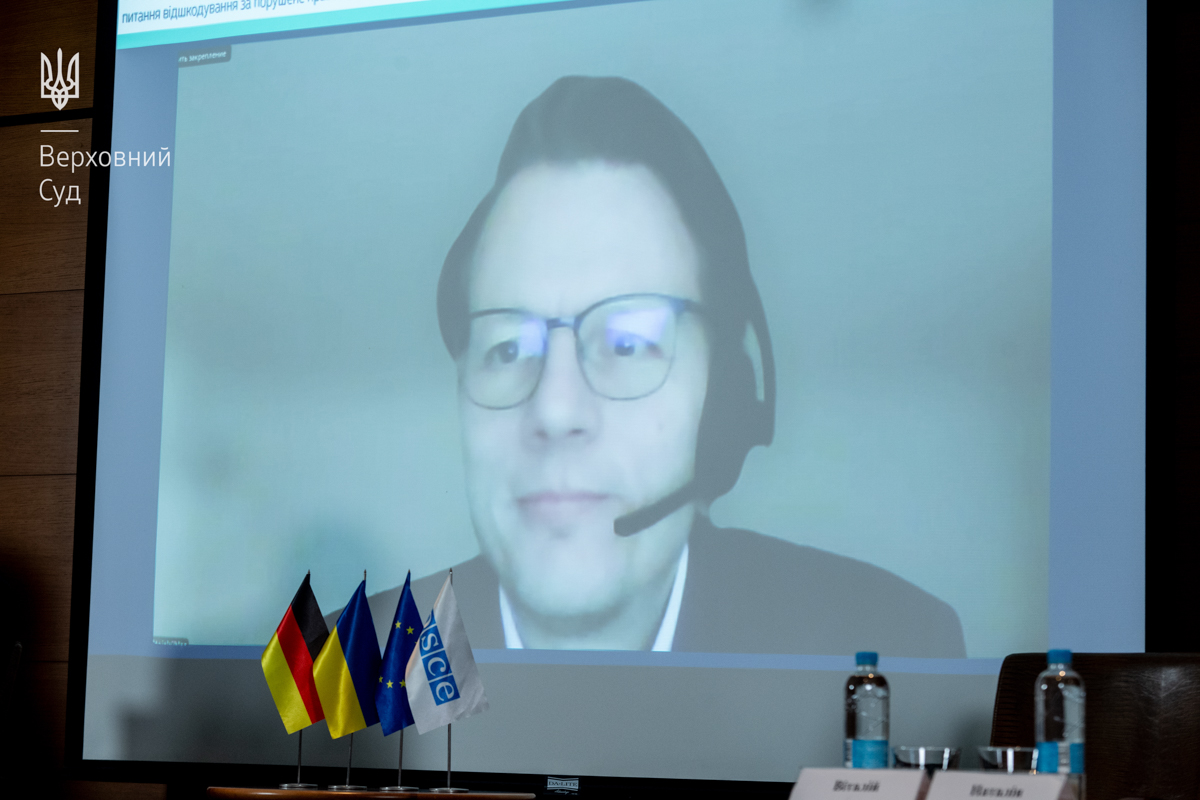
Martin Steinkühler, judge of the Federal Administrative Court of the Federal Republic of Germany, spoke about the retroactive effect of the decisions of the Constitutional Court. In particular, he spoke about the practice of the Federal Constitutional Court of Germany regarding the retrospective and retroactive effect of certain provisions.
The speaker said that the Federal Constitutional Court of Germany has decided that the principle of legal certainty, as well as justice, is an integral component of the rule of law and one of the guiding principles of the constitution. Considering the issue of retroactive effect of the constitutional court's decisions, the legislator decided to give priority to the principle of legal certainty and protection of legitimate expectations over the principle of justice.
As the judge informed, the Federal Constitutional Court of Germany usually recognises laws as unconstitutional and invalid from the very beginning, i.e. from the moment they come into force. At the same time, the decision of the constitutional court to invalidate provisions does not affect decisions that have already been executed, as well as decisions that do not require enforcement. However, there are exceptions. For example, it may be that the invalidation of an unconstitutional law will lead to a situation that is even more unconstitutional. Therefore, if the immediate repeal of an unconstitutional law would lead to an even more unconstitutional situation, the constitutional court will recognise the provision of the law as valid for a certain period of time despite its unconstitutionality.
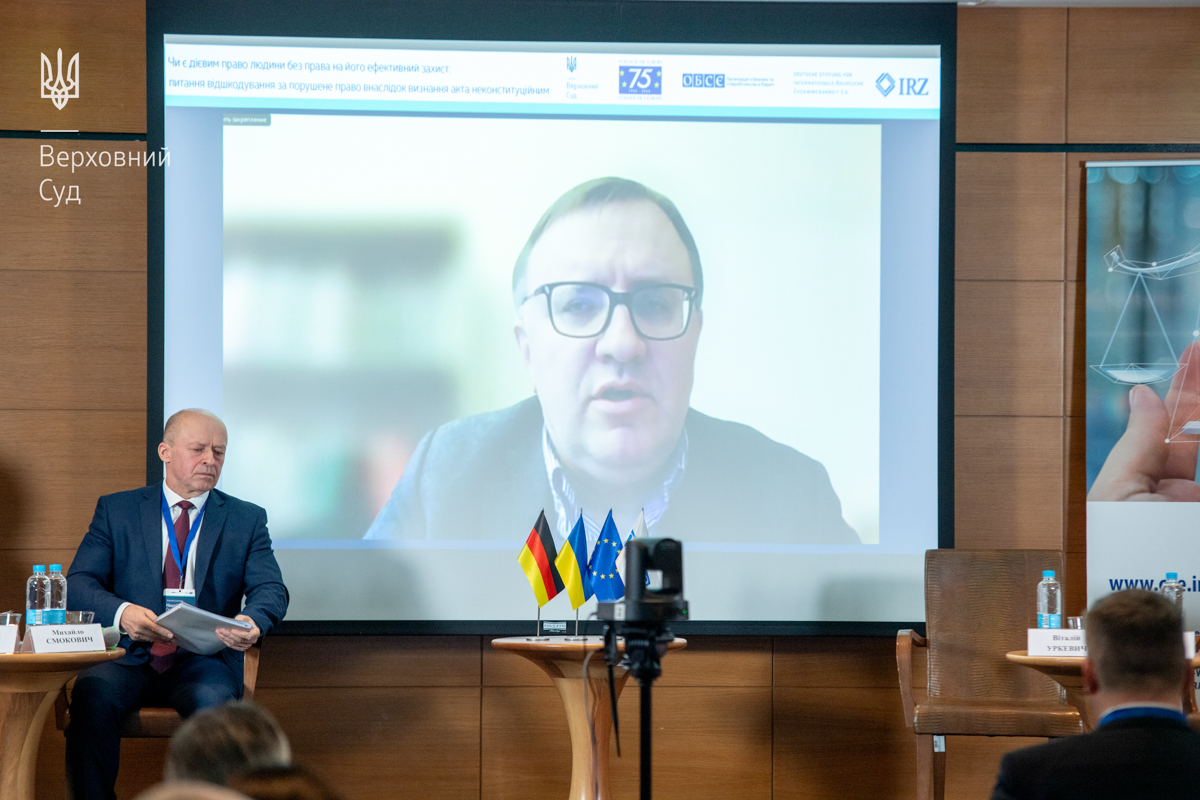
Pavlo Pushkar, head of division at the Department for the Execution of Judgments of the European Court of Human Rights of the Directorate General of Human Rights and the Rule of Law of the Council of Europe, focused on the issues of enforcement of ECHR judgments on compensation for damage caused by violation of human rights. He noted that the Constitutional Court of Ukraine in its practice often refers to the requirement of direct effect of the Constitution and, accordingly, Article 152 of the Constitution of Ukraine itself, even without a separate legislative provision, provides legal grounds for the courts, using the rule of law principle, to ensure compensation for damage caused to individuals by unconstitutional acts or actions. The case law of the Constitutional Court of Ukraine regarding Article 152 of the Fundamental Law of Ukraine confirms the existence of the right to claim compensation for damage.
In this regard, Pavlo Pushkar cited the case law of the ECHR in relation to Article 13 of the Convention. Thus, in the case of Kudla v. Poland, the ECHR stressed that Article 13 of the Convention guarantees the availability of a remedy at the national level to ensure compliance with the essence of the Convention rights and freedoms in any form in which they can be enshrined in the national legal order. The remedy required by Article 13 of the Convention must be effective both in practice and in law.
On the other hand, there is a practice of the ECHR in the context of the work of constitutional jurisdiction bodies, which indicates that Article 13 of the Convention itself does not guarantee an effective remedy for constitutional provisions. This article does not guarantee the right to file a complaint with the constitutional court in addition to the rights already available in ordinary courts. For example, in the case of Wendenburg and Others v. Germany, it was held that the absence of a remedy for the decision of the Constitutional Court, which declared a provision incompatible with the Basic Law, did not raise any issues under Article 13 of the Convention. This part of the application was declared inadmissible as manifestly ill-founded. According to the speaker, this primarily concerns the practice of courts of constitutional jurisdiction, which have the opportunity and authority to consider the issue of compensation for damage.
There is also the case law of the ECHR in relation to Ukraine. Thus, in the case of Petlyovanyy v. Ukraine (admissibility judgment), the Court concluded that the claims for damages based on Article 1177 of the Civil Code of Ukraine were inadmissible, since the ‘legal basis’ for compensation itself did not create ‘legitimate expectations’ within the meaning of Article 1 of Protocol No. 1 to the Convention. Accordingly, the mere absence of a law did not create a ‘reasonable claim’ in the context of this provision of the Convention.
In conclusion, Pavlo Pushkar expressed the hope that the above examples would be useful in shaping the position of the courts regarding compensation for damage caused by the recognition of an act or actions as unconstitutional.
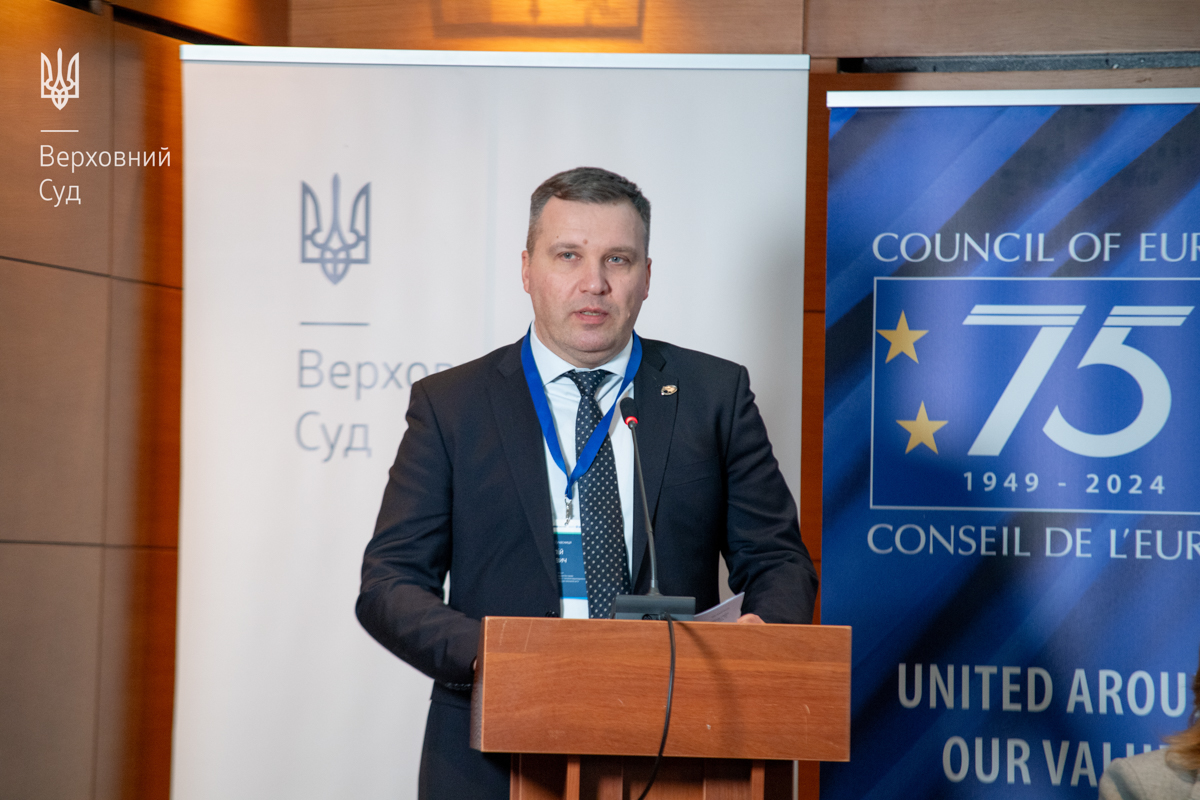
Vitalii Urkevych, Secretary of the Grand Chamber of the Supreme Court, focused on the procedural issues of restoring the violated right in case of recognition of an act as unconstitutional. He reminded that under exceptional circumstances, court decisions that have entered into force and completed the proceedings may be reviewed. According to the speaker, there are no difficulties with regard to court decisions on the merits of the dispute, while the question arises as to the possibility of reviewing certain court decisions.
According to the current case law, the rulings that complete the consideration of the case and may be reviewed in exceptional circumstances are the rulings of the court of first instance on: closing the proceedings or leaving the application without consideration; dismissing the application for setting aside the arbitral award; setting aside the arbitral award; issuing a writ of execution and refusing to issue a writ of execution to enforce the arbitral award; rulings of the court of appeal to set aside the court decision with the closure of the proceedings or leaving the claim without consideration. In addition, if the court of cassation resolves the issue of closing the proceedings or leaving the claim without consideration by issuing a ruling, such a ruling is also considered to be the end of the case.
The speaker noted that following the adoption of the relevant decision of the Constitutional Court of Ukraine, there are periodic issues of review, for example, the decision of the cassation court to refuse to open cassation proceedings. According to the procedural law, an application for review of a court decision in exceptional circumstances on the grounds that the Constitutional Court of Ukraine has established the unconstitutionality of the law applied (not applied) by the court in resolving the case may be filed by the parties to the case within thirty days from the date of official publication of the relevant decision. At the same time, under martial law, there are cases when the CCU determines a special term for the invalidation of an unconstitutional law, usually six months.
In this case, as noted by Vitalii Urkevych, a paradoxical situation arises, since if a party to the case files an application for review of a court decision on the grounds that the Constitutional Court of Ukraine has established the unconstitutionality of the law within thirty days from the date of official publication of such a decision, the relevant legal provision continues to be in force.
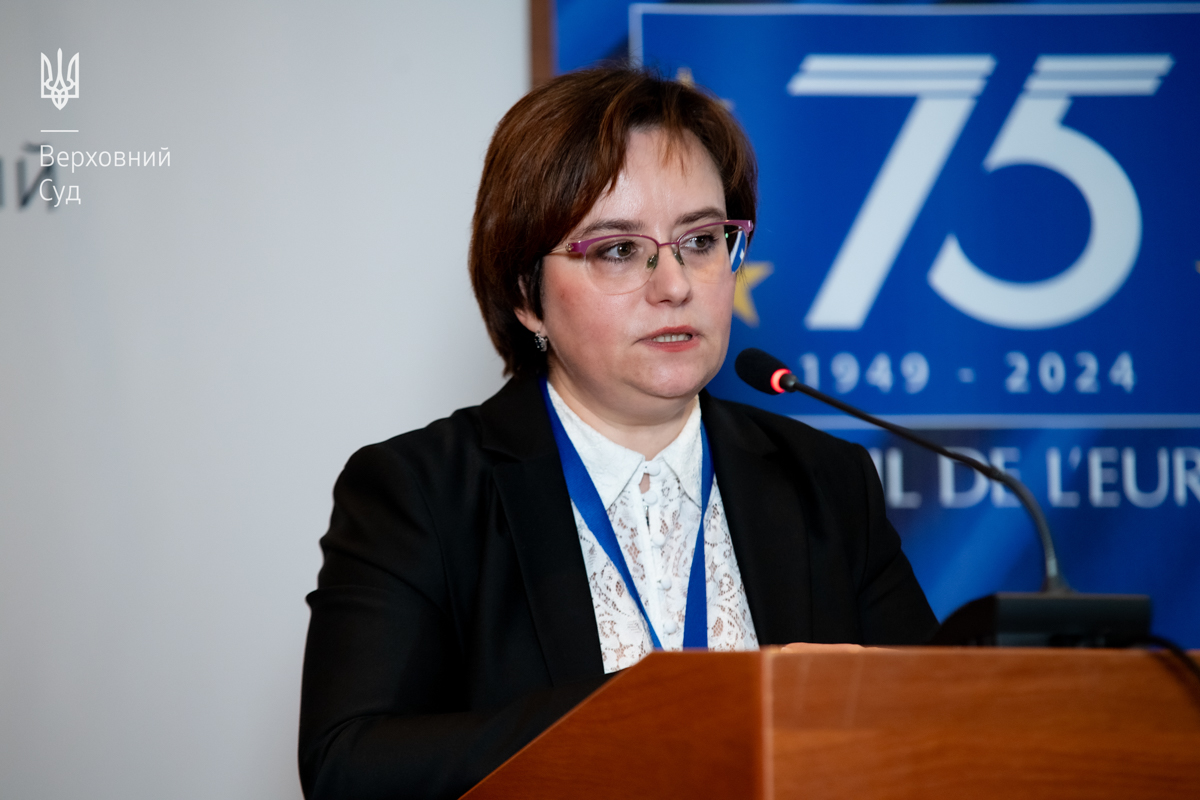
Nataliia Sakara, judge of the Civil Cassation Court of the Supreme Court, said that the recognition of a law as unconstitutional is a ground for reviewing a court decision in exceptional circumstances. According to the speaker, after receiving the relevant decision of the CCU, several questions arise: which court decisions can be reviewed and which entity can file such an application.
First of all, the court pays attention to whether the court decision has been enforced. Then the question arises as to which decisions can be enforced. Judgments on the satisfaction of a claim may be enforced if an action for an award has been filed. If the court dismisses the action, the judgment is no longer enforceable, the court only states that there was no violation of the law, the judge explained.
Nataliia Sakara pointed out that if a person wants to review a decision made at the national level under exceptional circumstances, he or she can refer to any decision of the CCU, even if he or she was not an applicant when applying to the CCU. The adoption of a CCU decision gives rise not only to the possibility of reviewing court decisions in exceptional circumstances, but also provides for the possibility of filing a claim for compensation for material and moral damages in accordance with the procedure established by law (part 3 of Article 152 of the Constitution of Ukraine).
Since there is no such law, the speaker noted, the question arises whether the courts can apply by analogy, for example, the provision of Article 1175 of the Civil Code of Ukraine, which provides for the possibility of compensation for damage caused by a regulatory act that is subsequently declared illegal. In accordance with the current case law of the Civil Cassation Court of the Supreme Court, courts cannot apply this provision by analogy.
Nataliia Sakara explained that based on the provisions of Article 1175 of the Civil Code of Ukraine, a person may receive compensation for the damage caused to him or her if a regulatory act is declared unlawful. In this case, the person must file a lawsuit with the court to declare the act unlawful and to compensate for the damage. If the CCU's decision is involved, the question may arise as to whether Article 1175 of the Civil Code of Ukraine is applicable to the person who filed the appeal with the CCU.
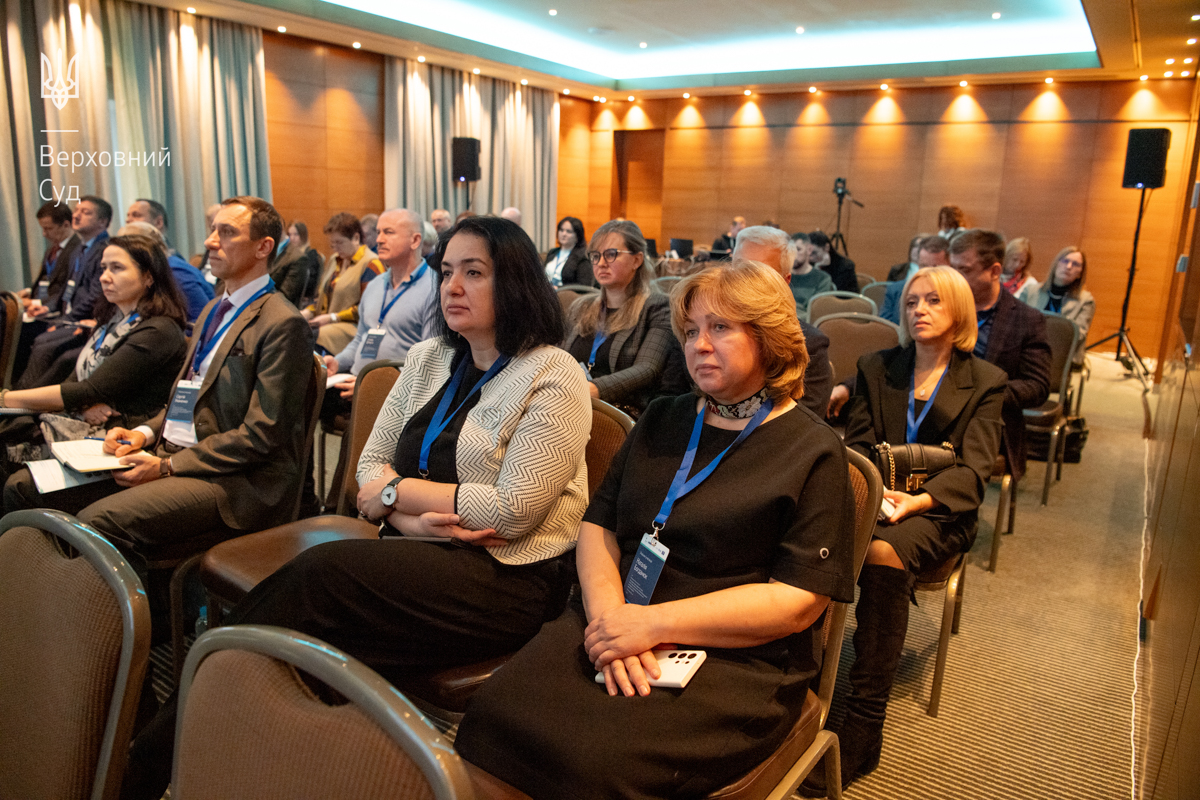
At the end of the event, Mykhailo Smokovych, President of the Administrative Cassation Court of the Supreme Court, said that when considering and resolving cases on the protection of human rights guaranteed by part 3 of Article 152 of the Constitution of Ukraine, the courts must establish whether the right has been violated, whether the damage has actually been caused, determine jurisdiction, and establish a causal link. In addition, when resolving such disputes, it is important to pay attention to the time limit for filing a lawsuit.
In her turn, Myroslava Bilak, judge of the Administrative Cassation Court of the Supreme Court, thanked all those involved in organising the seminar and the participants. ‘It is due to the constant discussions around practical legal issues that a legal demand is formed to find answers to the questions dictated by real-life practice,’ the judge concluded.
The event was organised by the Supreme Court with the support of the Council of Europe projects ‘Support to the functioning of justice in the war and post-war context in Ukraine’ and ‘Strengthening judicial and non-judicial remedies for the human rights protection of the war-affected people in Ukraine’, together with the OSCE Support Programme for Ukraine ‘Support to national stakeholders in enhancing accessibility of constitutional justice’ and the German Foundation for International Legal Cooperation.
The video of the event is available on the Supreme Court's YouTube channel:
- Part 1: https://www.youtube.com/watch?v=h7oXPjXXMMc;
- Part 2: https://www.youtube.com/watch?v=HR6C0azvjLM.